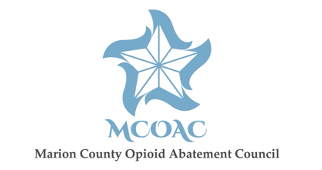Resources
Background
Extensive damage and loss of life caused by the opioid crisis was brought on by the unethical and over-prescribing of opioid medications. The state of Tennessee is receiving over $1 billion from large corporations in settlement funds over an 18 year period. Marion County has been allocated a portion of these funds, which will be received in annual payments. The County has established the Marion County Opioid Abatement Council to oversee the spending of these funds to ensure they are used to remediate the opioid crisis and save lives.
The Marion County Opioid Abatement Council consists of community members who have life-experience or professional expertise in the areas of substance use, addiction, and recovery. These individuals are appointed by the Mayor of Marion County. The Council serves to oversee opioid abatement funds, identify spending priorities, make recommendations to the Marion County Board of Commissioners, and track approved projects to remediate the opioid crisis locally. Spending priorities and related projects proposed by the Council must align with a list of evidence-based strategies approved by Tennessee’s Opioid Abatement Council, known as Exhibit E.
These core strategies include investing in prevention, treatment, recovery, harm reduction, and/or related research. To learn more about these approved strategies and allowable uses of settlement funds, review Exhibit E.
Our Inspiration:
During the initial meeting of the Marion County Opioid Abatement Council, the members were inspired by these words of Mayor David Jackson, “ If one life is saved as a result of this money, it will be worth it”. Due to those words, the Council often reflects on The Starfish Story, which inspires us to make a difference for each one suffering due to the opioid epidemic.
Our Mission:
The Marion County Opioid Abatement Council serves to advise the Marion County Board of Commissioners to effectively, fairly, and transparently spend opioid abatement funds awarded to the county. The Council will identify spending priorities, make recommendations, and track approved projects focused on prevention, harm reduction, treatment, and recovery strategies to overcome opioid and substance use disorder.
Our Vision:
We envision Marion County as a community equipped with services and resources to mitigate the impact of the opioid crisis, stop opioid and substance use disorder stigma, improve health outcomes and save lives.
Council Members:
Debbie Matthews, Chair
Randall Pesnell, Vice Chair
Alyson Riley, Secretary
Mark O’Leary
Dr. Cari Beth Paige
Beth Raulston
Steve Strain
Council Consultants:
Lynn Cooper, Marion County Schools
Sarah McCall, Substance Misuse and Addiction Resource for Tennessee (SMART)
Rachel Swafford, Tennessee Department of Health (TDOH)
Council Meeting Information:
Meetings are held at the Marion County Courthouse (1 Courthouse Square, Jasper, TN 37347).
Meetings are typically held quarterly (January, April, July,& October). Check the county calendar for specific dates and times.
Meeting Agendas and Minutes are available upon request. For more information, contact marioncountyopiodcouncil@gmail.com
All of the resources listed below are solely for informational and educational purposes. This content is in no way an endorsement of any ideas/organizations/agencies/treatment or a substitute for professional medical advice.
Opioid Settlement Funding Grants
Due to the extensive damage and loss of life caused by the opioid crisis that was brought on by the unethical and over-prescribing of opioid medications, the state of Tennessee will be receiving over $1 billion over 18 years in settlement funds from several large corporations. Marion County has been allocated a portion of these funds, which will be received in annual payments. The County has established the Marion County Opioid Abatement Council to oversee the spending of these funds to ensure they are used to remediate the opioid crisis and save lives. Council will invite community organizations to apply for these funds annually.
Availability of Funds
The selection process for funding will utilize a competitive process, and the number of awards will be dependent on the amount of funds available for annual allocation. The amount of funds available and dates of application submissions and awards will differ annually.
Up to 20% of the available funds can be held back at the discretion of the Marion County Opioid Abatement Council each funding cycle for urgent needs that may arise between annual funding periods. If the holdback funds are not allocated prior to the next funding cycle, they will be included in the total amount available for distribution.
The next grant opportunity will be posted in January 2026.
Review all the requirements to ensure your service or program qualifies and that you can meet the reporting deadlines.
To be considered for a grant, please download and complete the grant application below. You must save this PDF form with your information as a new file to email to the committee. If you fill out this form in a browser window, you must download the document with your changes or print it as a new PDF file. If you enter information in this PDF form, then leave a browser window and return to it, your application will not be saved.
Before you submit the application, please contact Denise Mason at the Marion County Mayor’s office at 423-942-2552 or dmason@marioncountytn.net to get a copy of the sample contract to review.


